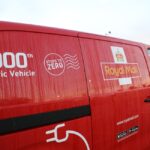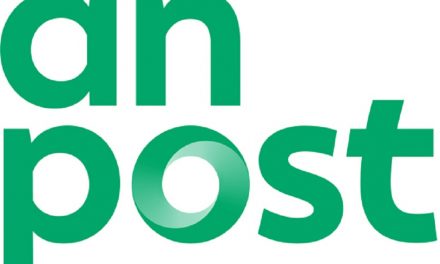
Irish Post Office and ANC venture delivers volume and savings to both
A year ago, The Irish Post Office’s distribution arm, SDS, and UK-based ANC formed a partnership to provide deliveries within each other’s domestic markets. The deal, according to ANC, was struck in order to drive growth for sales in each market through quality services.
Never before had there been a similar distribution contract signed between a publicly-owned postal operator and a private company. SOS offered ANC the network of a national postal operation, while ANC claimed it could provide better attention to SOS, needs than previous partner, Parcelforce Worldwide.
Six months into the partnership, ANC said volumes had grown from 2,500 consignments a month to 5,400 between the two operators. That has now grown to 6,200, with an even 50/50 balance between the two.
Mark Mitchell, ANC’s business development director, says this balance is important to the relationship as each partner sells home-leg services to the other. For the partnership to work, both parties need to benefit equally: “If we were shipping a lot more than them, then we would ask whether they were really trying. However this is not a one-sided set-up.”
Divided Costs
One strength in the arrangement lies in the difficulty all operators have selling backloads from another market. Both operators had previously operated a daily flight between Ireland and the UK, with strong outbound demand but weak backloads. They have now successfully integrated operations so that a single aircraft operates daily between Liverpool’s Speake airport and Dublin. Mitchell says having control over the uplift, means they can choose Liverpool, which is closer to ANC’s hub, rather than taking shared capacity into East Midlands Airport.
Dividing the costs made an immediate saving, and Mitchell says that the similarity of the two companies’ cost structure has helped all the way through. Both companies offer one another a matched fixed rate, and then sell their margins on top according to what the market will accept. This was agreed on following extensive “open book” negotiations, where the two companies found they closely reflected each other’s set-ups.
In addition to the aircraft, both operators had hubs in their respective countries, with similar ground operations and automated sorting facilities, adding up to similar cost structures.
This meant they could split costs equally, forming an equal partnership. “SOS has one of the lowest unit costs, and we have tapped into that. We have three dedicated Ireland sales staff, who are able to go out and market our premium bag products to the big financial institutions, and law firms in the main cities. They are able to compete with the likes of FedEx and OHL,” Mitchell adds.
Quality Up
Mitchell also points to quality for its Irish deliveries. “There’s nobody else in Ireland that has the over-night infrastructure that they have. There are no post codes in Ireland so the package to be delivered depends entirely on the knowledge of the local SOS driver.
“In the past, we had a 70 percent success rate for next day deliveries which is now over 98.5 percent. Equally, certain areas like Limerick or Donegal used to be three day deliveries. Now we can hit the next working day, where no other operator can. This gives us a massive advantage.” While 30 percent of ANC’s work is currently trucked to Ireland as freight, SOS had formerly only operated in the air courier market. This has now changed, Mitchell says, with 5 percent of the Irish operator’s shipments now moving by truck and sea. ANC’s ability to handle large palletised deliveries, was another advantage it could offer over Parcelforce, Mitchell adds.
ANC is predicting continued growth between the two companies, after the current triple digit improvements, to be expected from a start-up operation, subside. Mitchell says that volumes within the partnership are forecast to continue to grow in double-digit terms until 2005. Based on the success of th arrangement, he says ANC is now looking for similar tie-ups with other postal operators in Europe.











